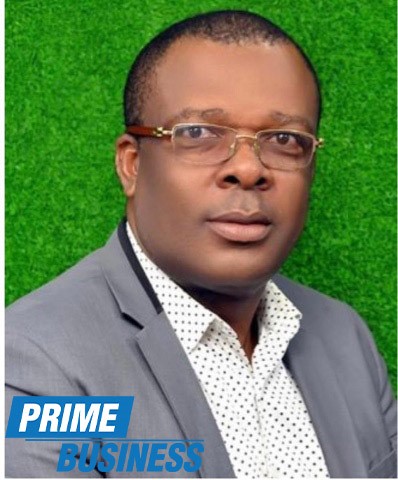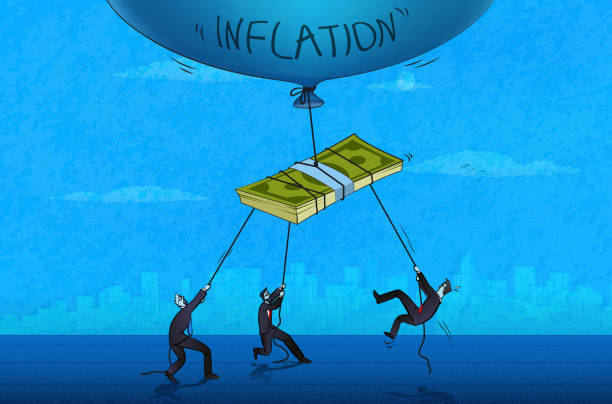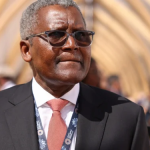In a shocking exposé, it has come to light that the Nigerian tertiary education system is entangled in a web of corruption, dubious accreditation practices, and a deficit of competent management. What follows underneath is a harrowing reality of financial corruption, the detrimental “ECOMOG” syndrome surrounding the National University Commission (NUC) accreditation, and the severe lack of management skills plaguing Nigeria’s public tertiary education. The repercussions of these systemic failures are detrimental to students and the country’s future as a knowledge-driven nation.
READ ALSO: The Trouble With Education In Nigeria
Join our WhatsApp ChannelAccording to Transparency International, 66% of the money allocated by the Nigerian Government to education is stolen by corrupt officials. Notably, the Nigerian Liquefied Natural Gas (NLNG) projects, among others, intended to enhance infrastructure and academic resources, have become breeding grounds for corruption. In 2017, over 200 billion naira was disbursed by TETFund to universities but none of the university unions including ASUU monitored the disbursement of the funds. Earlier in 2016, a range of fraud allegations ran through some Nigerian universities.
Fraud Alerts
In 2016, some top officials of the Federal University of Agriculture, Abeokuta, Ogun State, were arraigned on an 18-count charge of financial misappropriation in High Court 6, Abeokuta. The vice chancellor, (VC) Olusola Oyewole, and four other top officials later refunded a total of N6.5 million out of the 800 million said to be missing. In the Federal University of Technology Akure, then VC, Gregory Daramola, and the bursar, Ayodeji Oresegun, were indicted for fanatical fraud to the tune of N24 million. In 2016 also, the bursar of the University of Calabar, Peter Agi, lost an appeal for his suspension at the National Industrial Court, Calabar, after being indicted for fraud, forgery and threats to life. A N3.5 billion facility upgrade intervention was the reason for the travails of Bamitale Omole, former Vice-chancellor of Obafemi Awolowo University, at the hand of the EFCC in 2017.
READ ALSO: University Degree Versus HND: Certificate Or ‘Sabificate’?
Following the slew of frauds, the Social Economic Rights and Accountability Project (SERAP) in 2018 published a report entitled Stealing the Future: How federal universities in Nigeria have been stripped apart by corruption. SERAP noted that there were allegations of corruption in several federal universities relating to the unfair allocation of grades contract inflation, truncation of staff salary on the payroll, employment of unqualified staff, certificate scandal, examination malpractice, sexual harassment, and issuance of results to expelled students.
In many cases, funds, often in substantial amounts, were allocated for infrastructural projects in various universities across the country. Shockingly, a significant number of these projects remain unexecuted or incomplete, raising questions about the integrity and accountability of those responsible for managing the funds. In 2017, the N300 million National Economic Empowerment and Development Strategy (NEEDS) assessment fund granted to the Federal University of Petroleum Resources (FUPRE) in Delta State was reportedly diverted. Mr Akaehomen Ibhadode, the vice chancellor and other top officials of the university were fingered in the corrupt practice, having been quizzed by the EFCC. The fraud alert blew open when some NEEDS assessment officials who were visiting the institution found that the projects presented by the VC were refurbished structures sponsored by TETFUND in the past. In 2018, funds totalling $1.05 billion (at N360 to a dollar) sourced from the Nigerian Liquefied Natural Gas dividend were illegally diverted by the federal government itself. Dividends from the gas firm are meant to be shared by the federal, state and local governments of Nigeria. In turn, federal universities are expected to get their own fair share of the sum if the fund were paid into the right account, that is, the consolidated revenue fund of the federation. SERAP, therefore, noted that corruption and impunity in the university system have adversely affected the governance of federal universities and the quality of education received by students. In the end, the annual NUC accreditation of universities in Nigeria becomes a sham.
The ECOMOG Syndrome in University Accreditation
The NUC has long grappled with a grave issue known as the “ECOMOG” syndrome. This syndrome encompasses external pressure groups, corruption within the system, overambitious university administrators, meddlesome politicians, and gross ignorance – all of which compromise the accreditation process. There are several cases where universities, failing to meet the required standards, have been surprisingly granted accreditation. Investigations indicate that external pressure groups, seeking financial gains or political influence, have exerted malicious influence within the NUC. The rampant corruption within the system further exacerbates these concerns, allowing subpar institutions to hold accreditation that undermines the value and credibility of Nigerian degrees. Why not? How can the same government that should fund universities fail to do so, and turn around to ask its agency to proceed on accreditation of universities? Simply, the cycle of ironies simply leads to the universities colluding to do the obvious: Do whatever is expedient to get accreditation.
READ ALSO: Mixed Feelings For WAEC, UTME Top Performer, Kamsiyochukwu Umeh
This erosion of educational standards poses a significant threat to Nigerian students, as they invest precious time and resources, only to receive substandard education and degrees of questionable value in the job market. The consequences are far-reaching, hindering individuals’ prospects and hampering Nigeria’s progress towards becoming a knowledge-driven economy.
Therefore, at the heart of Nigeria’s public tertiary education system lies critical deficiencies in management skills such as the absence of strategic planning, inefficient resource allocation, and poor policy implementation. These deficiencies extend to areas such as academic research, innovation, and the overall quality of education offered. Without competent management, the Nigerian tertiary education system suffers greatly, compromising its ability to produce well-rounded graduates prepared for the challenges of a modern, competitive job market.
Urgent reforms are imperative to purge the system of corruption, bring transparency and accountability to the NUC accreditation process, and invest in cultivating competent management within Nigeria’s public tertiary education institutions. At the centre of the reform is the establishment of independent accreditation bodies as is done in many developed countries of Western Europe such as Netherlands, Spain and Germany. One of the bases for accreditation must be an independent assessment of funding by the relevant agencies and the concomitant academic standards in the universities. Only then can Nigeria reestablish its universities as beacons of knowledge, paving the way for a brighter future where students receive an unparalleled education and contribute significantly to national development.
Dr Mbamalu is a veteran journalist, Editor and Publisher.
Follow on Twitter: @marcelmbamalu















Follow Us